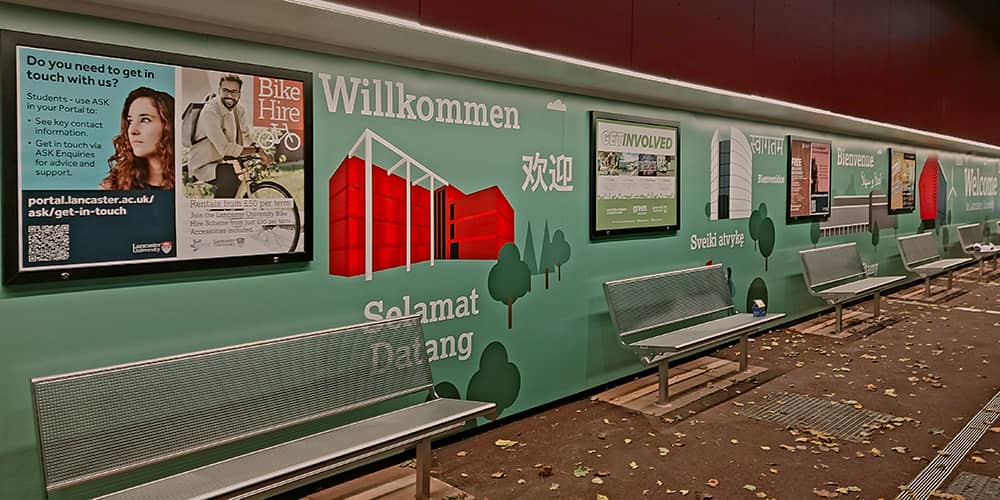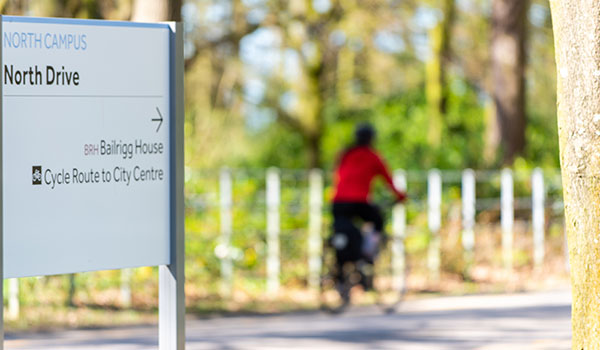We use the United Nations Sustainable Development Goals (SDGs) as a framework to guide our activity. Our sustainable travel work is linked to the following SDGs: Goal 3 Health and Wellbeing, Goal 11 Sustainable Cities, Goal 13 Climate Action and Goal 17 Partnerships for the Goals.
Reducing and eliminating carbon emissions is a key strategic objective for the University and we have a strong track record for reducing single-occupancy car journeys made by commuters, as well as increasing the use of public transport and active travel.
We have invested in our campus and infrastructure to support modal shifts by upgrading our cycle paths, cycle storage, shower facilities and bus station facilities. We have also made improvements to our internal signposting (through Maze Map) to ensure that all the facilities available to staff and students are identifiable.
Our campus now has modernised arrangements for parking management and has supported the introduction of electric vehicles with the provision of charge points.
Existing links with local public transport providers have been maintained through Partnership Agreements and bus use supported with provision of discounted ticketing arrangements.
The University has continued to work closely with local authorities on transport planning and to improve the site and district transport arrangements




